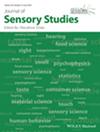Defining thresholds to support noncomparative sensory claims based on home use test results: Application to a new lip balm
Abstract
Cosmetic product claims are subject to many regulations to ensure consumers are not misled. Claims must also be relevant to consumers, requiring robust and validated data to support them. Noncomparative claims are investigated utilizing a database of consumer reactions to a wide range of cosmetic products. A procedure based on product attribute ratings and related count based proportions was developed to set performance thresholds that were used to validate new claims. A consumer study was conducted to test the new procedure on lip balm products. Attributes were rated on Days 1 and 10 to establish product performance shifts during use, while the inclusion of two products helped establish if the new procedure could identify and validate the strengths of each product. Results from the database indicated that including count-based proportions in addition to mean ratings added robustness to the performance levels that could be used to validate noncomparative claims.
Practical Applications
The new ISO standard for sensory claims sets out guidance to help ensure that relevant, robust and validated data are used to substantiate product claims. Many companies have substantial consumer data collected in recent years that can help ensure claims research is designed using consumer relevant product attributes. Just as important is that these data provide valuable information about levels of performance required for a product to deliver against the product and brand promise. This paper provides a methodology that could be adapted by companies, either in the non-food or food sector, thus helping ensure new products can be launched and marketed with confidence.

 求助内容:
求助内容: 应助结果提醒方式:
应助结果提醒方式:


